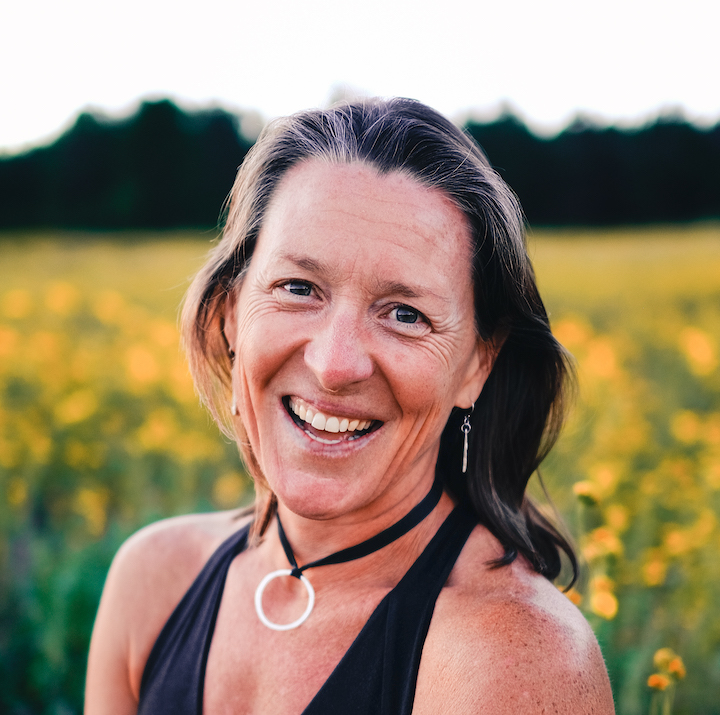
Catching Up with 2020 Crazyhorse Nonfiction Prize Finalist Bridget Lyons


Bridget A. Lyons is a writer and editor living in Santa Cruz, California. A graduate of Harvard University, she holds an MFA from Northern Arizona University and has had previous lives as a middle school teacher, wilderness guide, yoga instructor, energy bar maker, and graphic designer. Bridget is a Pushcart Prize nominee whose work has been published by Catamaran, Whitefish Review, Hawk and Handsaw, Atticus Review, Foothill Poetry Journal, and Wanderlust. She is currently finishing up a memoir that interweaves her nomadic life history with stories of migratory animals
CH: How did you first hear about Crazyhorse?
BL: I first heard about Crazyhorse at AWP. When I was in the first year of my MFA program, I got some funding to go and when I walked into that incredibly intimidating, huge room where all the literary magazines and publishers are set up, I immediately felt overwhelmed, like an impostor. It’s like the size of a football field. But I just happened to stop at the table for Crazyhorse and the folks there were super friendly. They gave me a free copy of their current issue which I took home and read. I found myself consistently resonating with pieces as I continued reading.
CH: Tell us about yourself! Who you are, where you studied, what you do, etc.
BL: I grew up in New Jersey. I had a very traditional, conservative academic upbringing. Prep school, Harvard, the whole suburban experience. And then by the time I was part of the way through college I realized this was not the path I was going to be able to take and I’ve had a bunch of different careers since. I was a teacher, a wilderness guide for thirteen years, a yoga instructor, I ran a yoga studio. I’ve had this wild smattering of different jobs. Then a few years ago I went to Northern Arizona University where I got my MFA and then I moved to Santa Cruz where I live now. The way I came to writing was through narrative construction. When you are born into a culture or family where you have a certain trajectory and you choose not to follow that trajectory you need to start creating a new narrative about what you are doing and what you are about.
I noticed you have had a wide and varied number of professions over the years. Was there one that you feel left a lasting impression on you and your work as a writer?
BL: Yeah, when I went to college everyone said this is going to be great for you; you are going to thrive there and when I actually got to school I spent my freshmen year feeling like wow, I am actually not thriving here, I am not enjoying this at all. Everyone was uber competitive. It was a very cutthroat environment. It just didn’t feel like a good fit for me but yet I didn’t know what else to do. I had started taking trips to the White Mountains of New Hampshire with people from the Outing Club. We went hiking and canoeing and I had a moment where I realized these people, these environments and places are feeling a lot better to me than the whole school thing is so the summer after my freshmen year I did a 90 day trip in the Alaska wilderness with the school I ultimately went on to work for, NOLS. In the course of that experience I met a bunch of great people who were also trying to figure things out in a different way other than a traditional professional or academic setting and I spent an extended amount of time in the wilderness. The wilderness became more of a repository for the thoughts and ideas I had. It was furnishing many of those ideas in a way. The natural community became as much a part of my community as people and books were.
Your essay, “Tangled”, deals with the idea of the responsibilities and the definition success of an individual within a larger collective such as a democracy or society at large.
BL: Those ideas are my demons and I wrestle with them every day. Some days I feel more at peace with them than on others. For me, writing something like this is not all that cathartic. Nature is a mirror for life experience. I am trying to deliver a snapshot of the reality inside my brain so that someone else who is experiencing something that is even a vaguely familiar reality inside their own brain can have that moment of “oh my gosh, you think about this too.” Our brains can be very lonely places. Writing is one fantastic vehicle for making our brains less lonely places if we can articulate what is going on in our own thoughts and put it out in the world so that someone can see those thoughts, recognize them, and resonate with them. It doesn’t necessarily fix the problem the reader is grappling with but it might give the reader an alternate insight. My objective is not to fix or solve my problems; I don’t even always think they are fixable or solvable, I’m not even sure I want to solve them. These problems are what make us human. I’m just trying to reveal a moment or a feeling that someone else might recognize.
What project (if any) are you working on at the moment?
BL: I’m working on a project about migration that grew out of my MFA thesis at the moment. It’s half memoir, half collection of essays about animal species that migrate. I am fascinated by the idea of migration. Our current social system is not set up for migratory people. You need an address for so many things like insurance and benefits. But there are many animal species that migrate and in a lot of cases their migration is an adaptive strategy that helps them to live better lives, less energetically challenging lives. In an evolutionary sense it is “easier”. It also keeps their species strong and most of all enables them to be flexible. My own crazy life path has led me to migrate a lot on my own. Living out of my vehicle along a road when I was teaching outdoor education classes. But I’m also very aware that getting attached to a certain home in the age of climate change is just not very adaptive. The places where we live are changing so rapidly. I’m trying to investigate the question of whether we should rethink ideas of home and how can this help our species move forward in the age of climate change.
Submissions for the 2021 Crazyhorse Nonfiction Prize open on January 1st 2021.
Submit your piece here: https://crazyhorse.submittable.com/submit
Writers may submit up to 25 pages. Winners receive $2,000 and publication. All entries will be considered for publication, and more than one manuscript may be entered. Before you submit, please remove your name and any other identifying information from your manuscript. Simultaneous submissions are okay, as long as you contact us should the work be accepted elsewhere. The $20 entry fee includes a one-year subscription to Crazyhorse.
